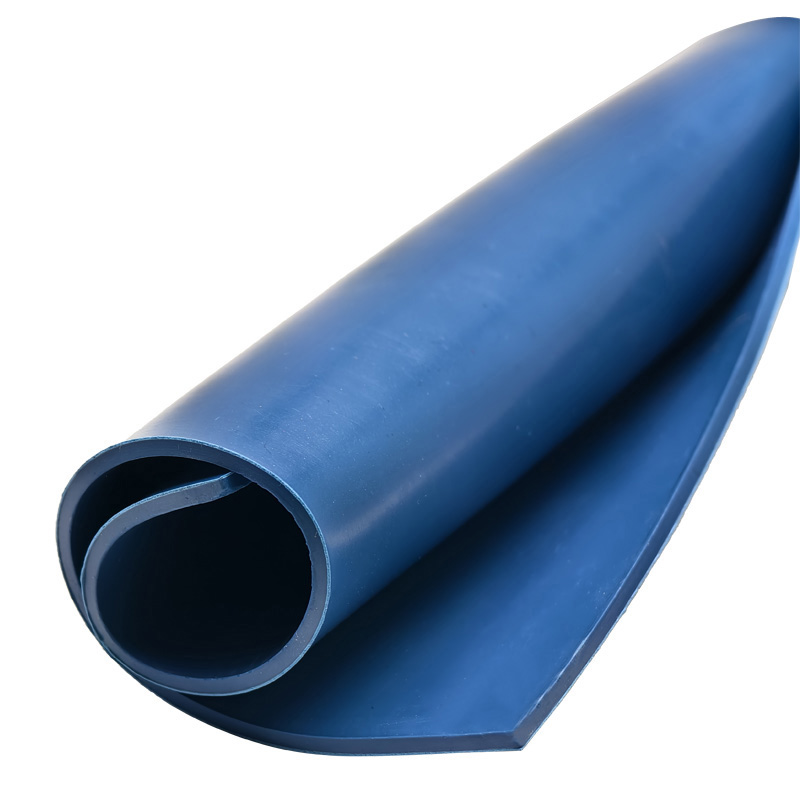Why is NBR Rubber Compound Ideal for Industrial Applications?
2024-12-17
When it comes to rubber compounds used in industrial applications, Nitrile Butadiene Rubber (NBR) stands out as a highly versatile and durable choice. Whether it's for sealing components, gaskets, or fuel systems, NBR rubber offers a wide range of benefits that make it the material of choice in various industries. But why exactly is NBR rubber compound so well-regarded in the world of manufacturing and engineering?
In this blog, we will explore the advantages of NBR rubber compounds, their unique properties, and why they are so valuable for numerous industrial applications.
1. What Is NBR Rubber Compound?
NBR rubber compound, also known as nitrile rubber, is a synthetic copolymer of acrylonitrile and butadiene. The proportion of acrylonitrile in the compound directly influences its properties, such as its oil resistance, temperature stability, and chemical resistance. NBR is highly regarded for its excellent resistance to oils, greases, and fuels, making it a popular choice for industries that deal with harsh chemicals and high-pressure systems.
2. Superior Oil and Fuel Resistance
One of the standout qualities of NBR rubber is its exceptional resistance to oils, fuels, and other petroleum-based products. This makes it a preferred choice for industries that require components exposed to high concentrations of oil, such as automotive, aerospace, and manufacturing. Parts like O-rings, gaskets, and seals made from NBR rubber can withstand harsh environments, ensuring a longer lifespan and reducing the need for frequent replacements.
In the automotive industry, for instance, NBR rubber compounds are commonly used for fuel system components and oil seals due to their impressive resilience against fuel and oil degradation. This resistance also helps prevent leakage and contamination, ensuring the integrity and safety of machinery and engines.
3. Temperature Resistance and Stability
NBR rubber compounds exhibit impressive temperature stability. Depending on the formulation, they can withstand both low and high temperatures. Typically, NBR can endure temperatures ranging from -40°C to 120°C (-40°F to 250°F), although high-performance grades may withstand even more extreme conditions.
This level of temperature resistance makes NBR an excellent choice for applications in industries like automotive, heavy machinery, and manufacturing, where components are often exposed to varying temperature conditions without compromising their structural integrity.
4. Chemical Resistance
In addition to oil and fuel resistance, NBR rubber also offers resistance to a variety of chemicals and solvents. The copolymer's structure allows it to endure exposure to many hydrocarbons, alcohols, detergents, and some acids, making it ideal for seals, gaskets, and hoses in chemical processing, pharmaceutical, and food industries.
The ability of NBR rubber to resist corrosion and degradation when exposed to these chemicals ensures that industrial components remain functional and safe, even when handling potentially aggressive substances.
5. Durability and Wear Resistance
NBR rubber is not only chemically resistant but also highly durable. It is known for its abrasion resistance, making it ideal for use in applications where wear and tear are common. Whether it's a gasket in a high-pressure system or a seal in machinery exposed to friction, NBR’s durability helps prevent premature failure and ensures long-term performance. This makes it a reliable material for demanding industrial environments where equipment and parts need to maintain performance under constant use.
6. Versatility in Manufacturing
NBR rubber compounds are highly customizable to meet specific needs and requirements. Manufacturers can adjust the proportions of acrylonitrile and butadiene to create NBR formulations that cater to particular temperature, chemical, or mechanical requirements. This versatility allows for the production of a wide range of components, including O-rings, gaskets, seals, hoses, and belts.
For example, in the automotive industry, NBR is used in everything from fuel hoses to brake system components, while in the aerospace industry, it's commonly used for seals and gaskets in fuel and hydraulic systems. The ability to fine-tune the properties of NBR makes it an adaptable material for various applications.
7. Cost-Effectiveness
In addition to its physical properties, NBR rubber is also relatively cost-effective compared to other specialty elastomers, such as fluorocarbon or silicone rubber. This makes it an attractive option for companies looking to balance performance with budget constraints. For many industrial applications, the high performance and relatively low cost of NBR rubber compounds offer excellent value, especially when durability and chemical resistance are key concerns.
8. Environmental Resistance
NBR rubber also offers good resistance to ozone, weathering, and oxidation. These properties help protect industrial components from environmental damage, making NBR a great option for outdoor applications where exposure to the elements is a concern. Whether it's machinery used in construction, agricultural equipment, or outdoor industrial systems, NBR ensures that components remain functional and durable under harsh conditions.
9. Applications in Various Industries
NBR rubber is used in a wide variety of industries due to its robust properties. Some of the most common applications include:
- Automotive: Fuel seals, O-rings, hoses, gaskets, and brake components
- Aerospace: Seals and gaskets in fuel systems, hydraulic components, and engines
- Oil & Gas: Seals and gaskets in high-pressure and high-temperature environments
- Chemical Processing: Gaskets, seals, and hoses exposed to aggressive chemicals and oils
- Food and Beverage: Food-grade seals and gaskets resistant to oils and fats
- Industrial Equipment: Seals and gaskets for machinery exposed to high stress
10. Conclusion: Why Is NBR Rubber Compound Ideal for Industrial Applications?
The combination of oil resistance, chemical durability, temperature stability, and abrasion resistance makes NBR rubber compounds an essential material for a wide range of industrial applications. Whether in automotive, aerospace, chemical processing, or general manufacturing, NBR rubber provides reliable performance and longevity, ensuring the efficient operation of machinery and equipment in demanding environments.
By offering superior protection against oils, fuels, chemicals, and environmental factors, NBR rubber is an ideal choice for anyone looking for a durable, cost-effective, and high-performance material for their industrial needs. If you're in need of reliable seals, gaskets, or hoses that can withstand the toughest conditions, NBR rubber should definitely be on your radar.



